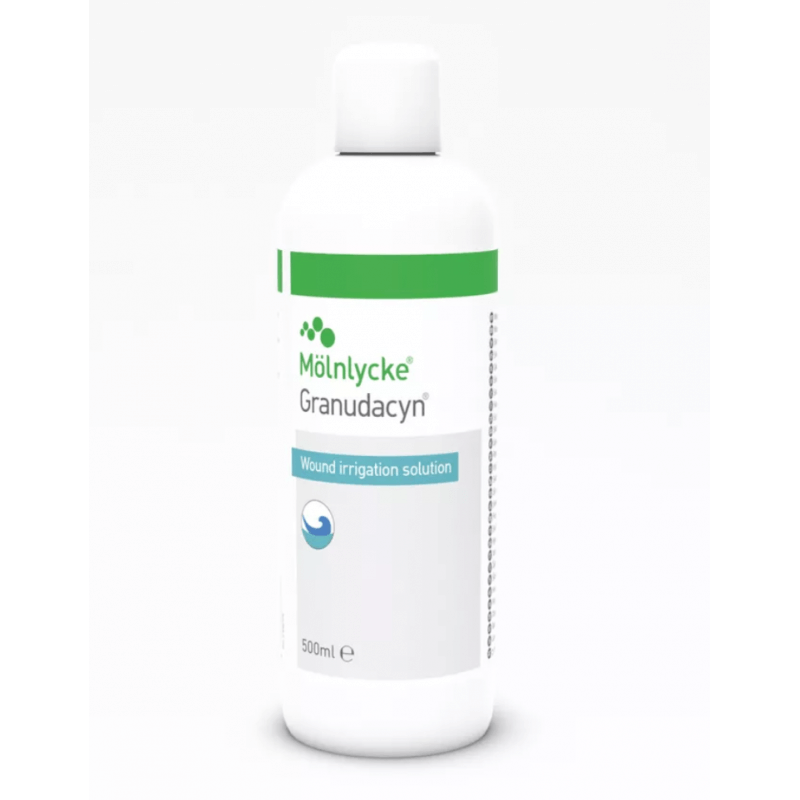
A new look at wound cleansing
In managing wounds it remains a common practice to either use soap and water or stronger solutions. The problem is that soap and water are ineffective against some pathogens whereas many stronger solutions potentially disturb the healing process, and potentially damage human cells. Granudacyn® is your go-to wound cleanser – cleaning wounds, supporting healing. .
A new look at wound cleansing
In managing wounds it remains a common practice to either use soap and water or stronger solutions. The problem is that soap and water are ineffective against some pathogens whereas many stronger solutions potentially disturb the healing process, and potentially damage human cells. Granudacyn® is your go-to wound cleanser – cleaning wounds, supporting healing. .
One solution. Many wounds.
Granudacyn® is an irrigation solution, safely preserved by hypochlorous acid (HOCl). It is used for cleansing and moisturising chronic, acute, surgical and contaminated wounds as well as for first- and second-degree burns. It can also be applied on sensitive tissues such as cartilage, tendons, ligaments and bones 1, or in the ear, mouth, surgical wounds (intraoperative and postoperative) and fistulas. This makes it a go-to wound cleanser for most wound care.
-
Effective on all types of wounds
Granudacyn can be used on all chronic wounds, including diabetic foot ulcers, pressure ulcers and venous leg ulcers. Additionally, it can be used on acute and contaminated wounds as well as first- and second-degree burns.
-
Better care, better quality of life
Tackling infection while not interrupting the natural healing process is important for patient wellbeing and supports healing.
-
Long storage, always at hand
Granudacyn can be stored at room temperature after opening for multi-patient use up to 90 days (gel) and 60 days (solution).


